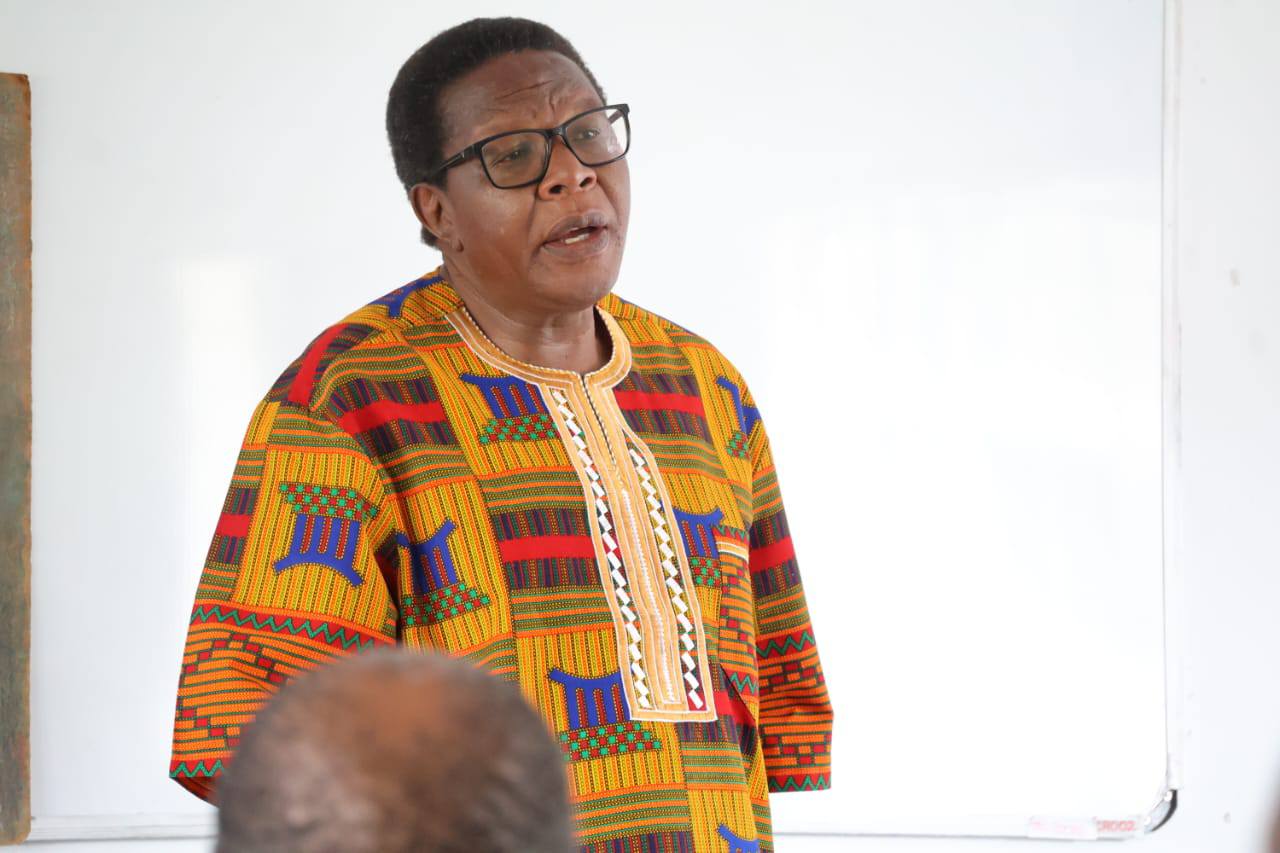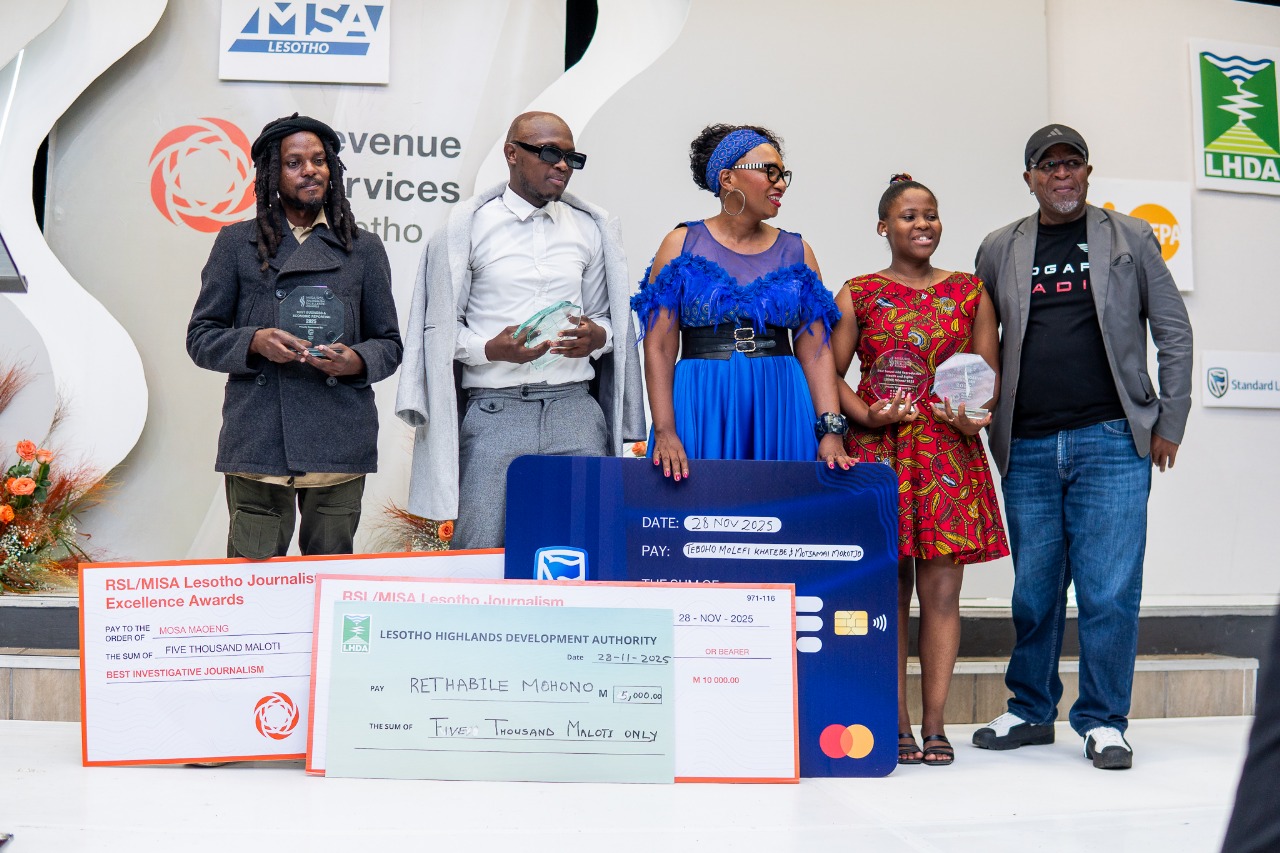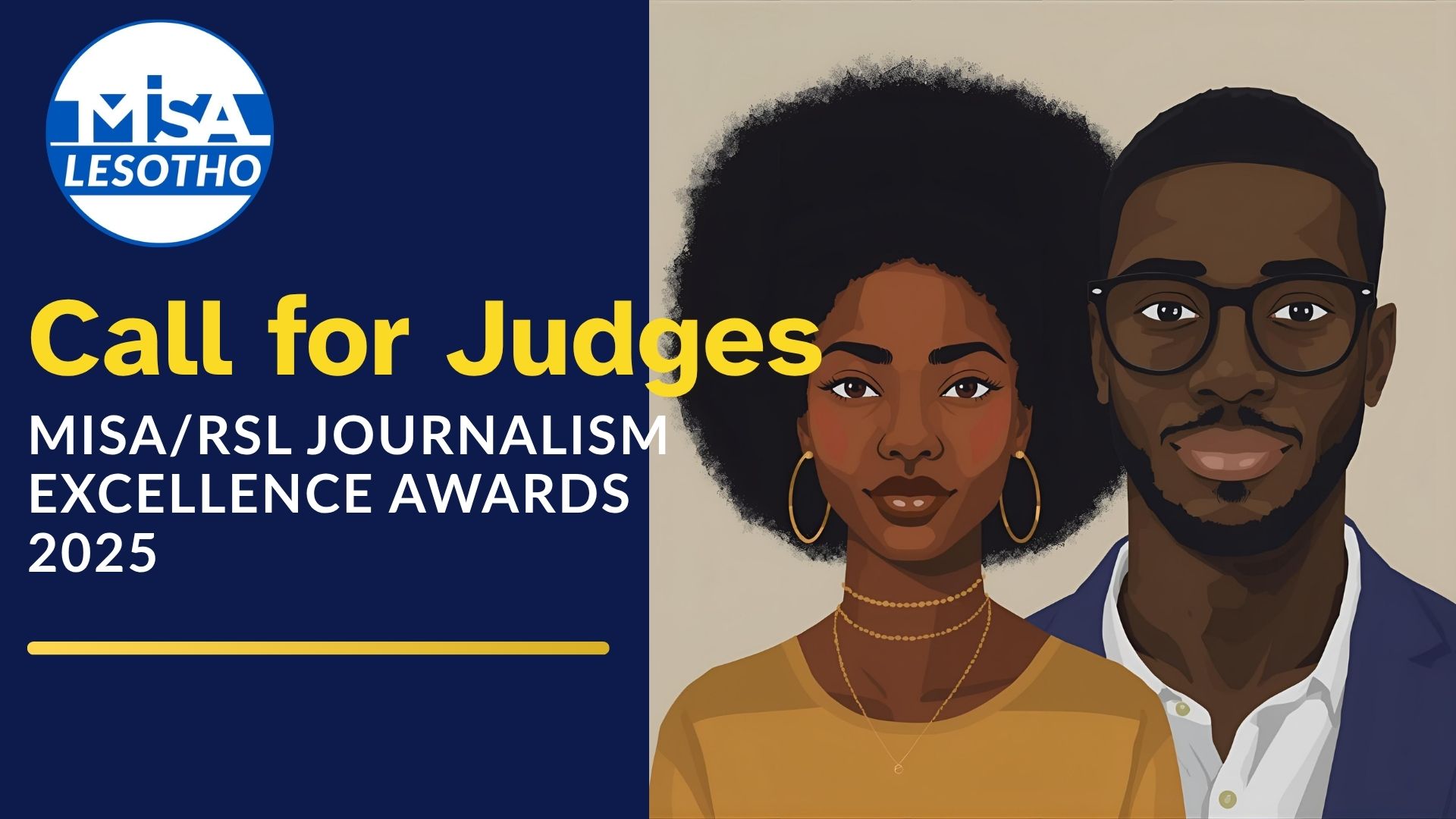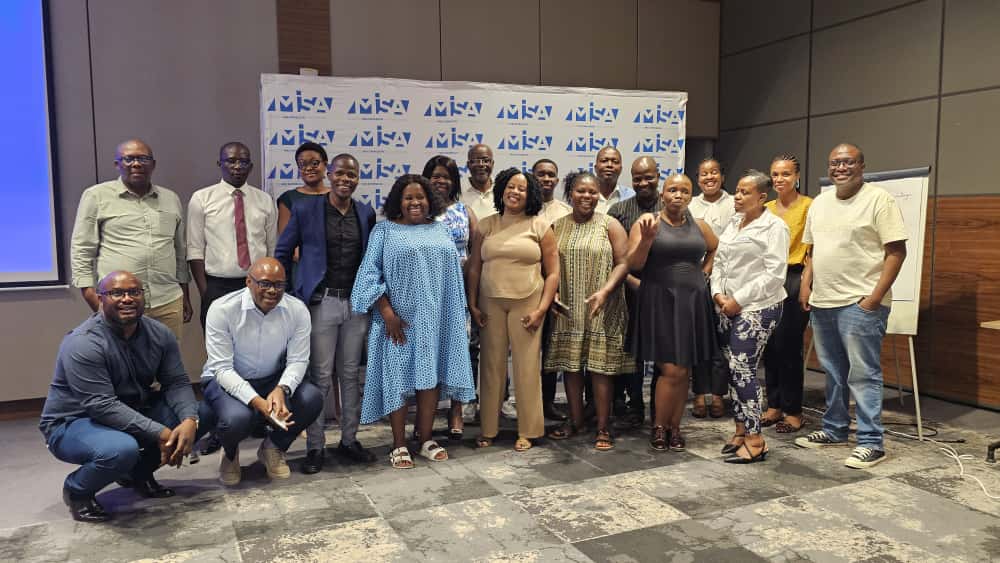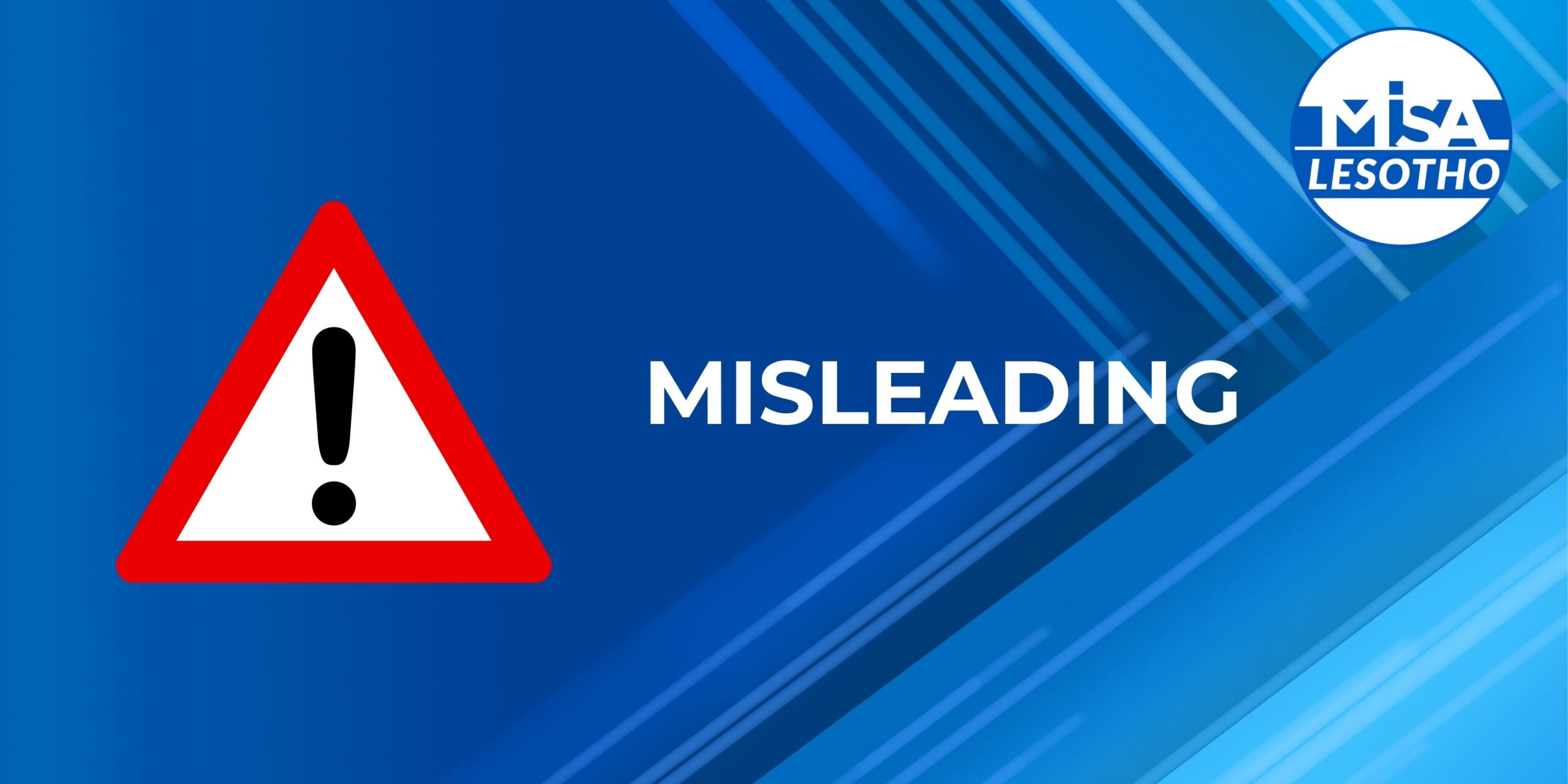Maleshoane Ratsebe
Professor Nqosa Mahao, the leader of Basotho Action Party (BAP), has lambasted both the media and civil society organisations (CSOs) for “losing their independence” and gradually becoming irrelevant to society “for they are captured under the evident political monitisation in Lesotho today.”
Prof. Mahao was addressing tens of mourners at the memorial service of the former National Director of MISA Lesotho, Thomas ’Muso Mapesela, at the Transformation Resource Center (TRC) Hall in Maseru on Friday.
Prof. Mahao, who was the Minister of Energy until he was fired recently by Prime Minister Sam Ntsokoane Matekane, claims media practitioners have “literally become beggars, running after politicians to beg money in exchange for favourable airtime on radio stations.”
“They (journalists) promise to publish stories that promote our campaigns, as politicians, if we give them money,” Prof Mahao said.
He added he knew a radio broadcaster who literally approached him to say: “I can make your troubles go away, if you can compensate me with money. I can publish good stories about you.”
The journalist, Prof. Mahao said, was talking directly to him. But the professor could not substantiate his claims by disclosing names of the broadcaster or the radio station involved.
However, he said when he was broke; “I told that particular broadcaster that I had no money. You know, even as I am a political party leader and a member of parliament, I do get broke like anyone else. I get cashless sometimes.”
He said the broadcaster quickly organised a radio programme that aimed at assassinating his character, “just because I could not pay the broadcaster the money that he/she sought from me.”
He did not spare the Civil Society Organisations, specifically naming the Lesotho Council of NGOs (LCN), Development for Peace Education (DPE) and TRC.
They too, he charged, were “captured” under what he described as a regime of “political monitisation”.
It has not been clear from Prof. Mahao whether he had expected sympathy from the media and CSOs over his troubled political career, particularly following his sacking from his ministerial position by Prime Minister Sam Matekane in November last year.
Prof. Mahao was the Minister of Energy under the four-party coalition government led by Prime Minister Matekane’s Revolution for Prosperity (RFP) party before he was sacked in November.
His party, the BAP, has since been rocked by infighting involving him against his former Secretary General Lebohang Thotanyana, as well as the party’s suspended deputy leader Motlatsi Maqelepo.
Prof. Mahao now says the TRC “was no longer the TRC that used to stand up and speak out for the people whose fundamental human rights were being violated.”
He directed his discontentment to the TRC’s Head of Program, Lira Theko, who was present at the memorial service, saying TRC used to speak out and defended “many people who were victimised in the past, but today you see the TRC that is no longer as vibrant and relevant as it used to be.”
According to Prof. Mahao, the media and CSOs are facing a growing crisis, “marked by declining standards, financial instability, and increasing political interference. Once regarded as key pillars of democracy, the media landscape and civil society sector are now grappling with issues that threaten their credibility and functionality.”
He pointed out that the playing field has changed drastically in the last three years as a result of the “monitisation of politics.”
Meanwhile, is response to Prof. Mahao’s accusations against the TRC, Mr Theko briefly said the professor should be mindful of how times have changed.
“CSOs are no longer operating the same way as in the long past. Times have change and so is the advocacy environment,” Mr Theko said.
In defence of the media, the chairperson of MISA Lesotho Kananelo Boloetse has noted with concern how much the journalism profession in Lesotho remains “one of the most under-appreciated and under-rewarded vocations.”
Mr Boloetse shared similar sentiments to Mr Theko, noting that Prof. Mahao should take note of the ever changing times. Today, Mr Kananelo argued, the donor funding space was shrinking: “Unlike in the past, the donors are nolonger as many as they used. For organisations such as ours, that depent on donor funding, it has become difficult to pursue our mandate, this, however, does not mean we are captured by anyone.”




